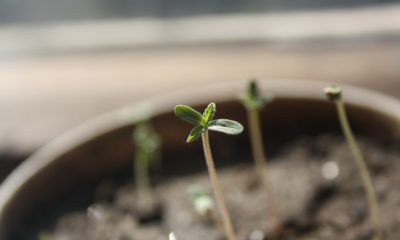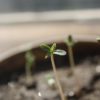
Cultivation
Thailand Plants Largest Pot Farm in Southeast Asia, Will Allow Home Grow
Few places in the world are seeing the cannabis reform conversation go at the pace of Thailand, where officials recently announced they’d planted Southeast Asia’s largest legal cannabis crop.
This September, the largest legal medical cannabis crop in Southeast Asia was planted at Thailand’s Maejo University, in its medical-grade greenhouse. The crop is made up of 12,000 cannabis sprouts, which will be cultivated and to turned into cannabis oil.
The Bangkok Post reports the crop is the first-ever done to industrial scale in the Association of Southeast Asian Nations. In theory, the crop will be able to produce one million bottles of cannabis oil, containing five milliliters of cannabis oil each by next February. That oil will be produced from 2.4 tons of dry marijuana flowers grown in about 32,722 square feet of space.
Historically, Thailand has had a thriving underground cannabis scene, but the government heavily criminalized the plant as one of America’s allies in the War on Drugs. However, in December 2018, Thailand’s conservative government jumped on board the growing international cannabis movement and legalized
This August, the Thai government unveiled its first cannabis laboratory in Rangsit University, where professors are have launched a “ganja studies” program. The university was initially reliant on cannabis that police seized from the underground market, but grows like the one just planted at Maejo University will change that dynamic.
The actual planting of the first sprouts at Maejo was quite the affair, featuring Deputy Prime Minister and Public Health Minister Anutin Charnvirakul getting dirt under his nails to kick off the crop.
While the crop is at an industrial scale, Charnvirakul said it was a first step in opening up the medical cannabis cultivation process to entities that aren’t licensed by the government.
“These are historic first steps on the path towards allowing people to grow six cannabis trees in their homes,” Charnvirakul told the crowd. “The university will be a center where ordinary people can learn how to plant and grow good quality cannabis. Cannabis is not an issue of politics, it is a product that can benefit people’s health. In the near future, families will be able to plant it in their back gardens like any other herb.”
The university’s director of Maejo Natural Farming Research and Development Centre, Arnat Tancho, will also personally lead the grow as the project manager. He believes the facility’s pedigree will allow his team to produce a medical-grade product completely organically. This means no fertilizers or feeding programs loaded with things like heavy metals, or worse!
According to Tancho, even the strain being planted makes the project special. The strain is called Issara 01, and it was developed from a spread of domestic genetics. Tancho said one of the reasons they went with a strain from rural Northern Thailand for their grow was to inspire people about the quality and possibilities of domestic genetics.
Tancho said the strain will be a one-to-one CBD to THC ratio. He says that is what the medical market demands at the moment. He also says the crop could move to a full outdoor setting in the not-too-distant future if a “plantation license” is approved. He thinks plantation-style grows of local genetics to each region could end up popping up all over Thailand.
With the emphasis of this project being the first of many, it would seem the wider population of Thailand will soon have their opportunity to grow six plants at home.
They will also have the opportunity to sell the final product from their backyard gardens to the government. Each plant could be worth for 2,225 Thai Baht, equal to $73.21 USD, so they have a chance at earning up to $439.26. The average household income in Thailand is only $3,322.81 USD, according to CEIC Data, so this is a reasonably good size chunk of change for people if the program ever gets going.
TELL US, have you ever smoked cannabis genetics from Thailand?

























